|
Hotei (also known as Budai) is often commonly referred to as the laughing Buddha. He is jolly and joyful with a smile on his face and often holding symbols of abundance. In Japanese culture, he is one of seven Japanese Shinto-Gods - the God of Contentment and Happiness as well as Abundance and Luck. He's also the patron of children, bartenders, and fortunetellers. Perhaps with my psychic abilities, that last one explains why I've always felt so drawn to his image. Rubbing his belly is said to bring luck. Some believe he was also a bodhisattva (a person on the path to buddhahood).
Hotei's image is often confused with the Buddha, Siddhartha Gautama, but this is inaccurate. Hotei is based on a wandering Chinese Chan Buddhist monk who carried a cloth sack. His names in Chinese and Japanese literally mean "cloth sack." He lived from 830 to 902 CE. It is said along with his worldly possessions, he carried candy in his sack, which he distributed to children to generate happiness. It is also said his main teaching method was laughter. Hotei is now a symbol of joy, luck, and abundance. It is especially auspicious if he is given as a gift to another, conferring luck and abundance on the receiver. Place him at or above eye level (never on the ground) in your home or business to cultivate joy and abundance. Felix Lichtenfeld from Pixabay
0 Comments
Have you ever been to a business where you've noticed a friendly-looking cat waving its paw? Usually the cat is placed right next to the register or in the store's entrance, waving at customers and beckoning them to do business.
This is Maneki-neko. His name in Japanese means beckoning cat, and he is a Japanese good luck talisman, although is use has become popular in feng shui, the Chiniese art of placement as well. His waving paw is actually a beckoning paw, inviting all to come in to the business where he is displayed to bring prosperity to the business owners. Maneki-neko originated in Japan's late Edo period, probably around the mid-1800s. One of the most popular myths about the cat is that a stray cat one day appeared in a merchant's shop. Although the merchant had barely enough to feed himself, he fed the stray and made it well. The cat was so grateful, he sat in front of the store to beckon customers inside, bringing the merchant prosperity. The paw Maneki-neko is beckoning with tells you what he beckons. His waving right paw attracts monetary prosperity and luck, while his left paw welcomes success in the forms of clients or customers. While Maneki-neko is most commonly seen in businesses, he can beckon other types of energy you'd like to cultivate in your life based on his color.
The cats often hold something in their non waving paw - usually symbols of wealth such as gold ingots or gems. These items further invite wealth and luck. In your home, place Maneki-neko in the prosperity sector, which is in the southeast. You can also place him in the southeast sector of your home office. In a business, you can place him in the window to beckon customers, in the prosperity sector, or near your cash register. At the register, face him into the shop (away from you) so he beckons the prosperity towards you. Image by Tania Van den Berghen from Pixabay Mirrors in bedrooms are very common, but they can do wonky things with chi energy in a place that is meant for sleep and romance.
The best advice is to remove mirrors from your bedroom - even the little ones. Mirrors bounce chi around, which can disturb sleep. They also represent the element of water, and one solid feng shui rule is to keep all water elements out of the bedroom, including mirrors or pictures of water lest the water douse the element of fire, which you'd like in a shared bedroom if you want to keep passion alive. Likewise, feng shui wisdom suggests if you have a mirror that reflects your bed in a marital bedroom, it is like inviting a third person into your relationship. If you're into that kind of thing, no worries. However, if you're not, keep this in mind: feng shui wisdom suggests a mirror reflecting the bed could cause infidelity in a committed relationship. I've known these mirror rules of feng shui for quite some time, but sometimes I play fast and loose with them because I believe I can adjust the energy in my spaces using other methods as well. Until just recently, I had a jewelry cabinet with a mirror on it in my bedroom simply because it was the only place I felt there was a good space for it near where I got dressed. Recently, we had some visitors from another realm come into our house with some off-putting, heavy energy. I'm not a fan of uninvited spirits hanging out in my home so as soon as I became aware of the energy, I did an energy cleansing. As I was walking through the bedroom with my palo santo, this cabinet that has been there for a few years started to give me a really bad vibe. I felt impelled to get it out of the bedroom right away. Now it hangs around with the other water elements in my bathroom. Problem solved, and perhaps not surprisingly, I've been sleeping better since its removal as well. There is an exception to the no bedroom mirrors thing. You can have one on the inside of your closet door, but keep the door closed. If you're struggling with sleep or the energy in your room feels off, try covering or removing mirrors. There's a good chance it will allow the chi to settle, and you'll sleep better. Image by Kamil Cyprian from Pixabay A large, multi-tiered lucky bamboo plant is a great feng shui prosperity tool. It cleans toxins from the air, and it's super easy to grow, propagate, and care for. It doesn't need much light, food, water, or trimming, and you can grow it in water and stones. Mine has a combination of river stones and quartz crystals in it.
I add spring water once a week and about once a month, I replace the water completely. I avoid using tap water because chlorine is harsh for the bamboo, but if you set a bowl of tap water out for 24 hours, most of the harmful elements will evaporate so you can use it in your lucky bamboo. This plant grows and grows for me with little intervention, and it gives me a sense of peace. If you're bad at plants, lucky bamboo is a forgiving way to bring some luck and some green into your home. If leaves or stalks yellow or brown, trim them away with sharp scissors. With the elements of wood (bamboo), earth (the rocks), and water, a lucky bamboo arrangement supports energetic balance and harmony. I like to tie a red string threaded with metal feng shui coins around the stalks to bring in the elements of fire and metal as well, so it represents a balance of all feng shui elements. Placed in your southeast sector, it supports prosperity, and placed in your east sector it strengthens family and relationships. Image by anncapictures from Pixabay 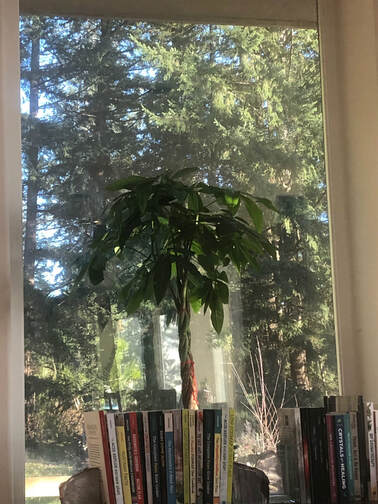 Want to bring more prosperity and abundance into your life? Try adding money tree, which is the plant Pachira aquatica, to the southeastern sector of your home or any room. You can also add them to the southeast sector of your office or small business for work abundance. The money tree pictured is one of mine (I have three because I think they're cool - I love the braided trunks and the structure of the leaves). It sits in the southeastern sector of my home and of my living room in an eastern-facing sunny window. I have another in a south facing sunny window and a third with southwestern exposure but away from the window. You'll notice I've also tied a red cord around the braided trunk. The cord has three feng shui prosperity coins tied with a mystic knot on it to further reinforce the theme of abundance. Pachira aquatica are relatively easy to find and care for. I've seen them at floral shops, online, and even at Home Depot in the plant department. Look for a specimen with healthy olive green leaves and braided trunks without any obvious wounds to them. The trunks are braided when the plants are young and pliable so it doesn't harm them. To care for your money tree, place it in well-drained soil in indirect indoor light. Too-bright direct sunlight can burn the leaves. Water it until water runs from the bottom holes once or twice a week when the soil starts to dry up. I tend to water mine every four to five days. Money trees also love humidity, so spritz it daily with water or place it with other plants grouped around a humidifier set on low. Make sure the plant never sits in standing water, which can cause root rot and kill the plant. Empty water from the water tray when it collects after watering. Transplant into a larger container every few years. This is easy to do because the root system of the tree is very close to the trunk, and it doesn't root deeply into soil. Fertilize three to four times each year, but don't overdo it. That's it. These plants are wonderful and they can bring plenty of abundance juju to your home. They also help improve interior air quality, and they're lovely to look at. Mine have flourished in my home. Expect to pay about $30 to $50 for a good-sized tree or about $10 to $20 for a smaller plant. This is less of a blog and more a series of links. If you're interested in feng shui and space energetics, here's a list of articles I've written for LoveToKnow. They offer a decent primer on some of the principles of feng shui. I'll add to it as I write more. What Is Feng Shui Decorating? Feng Shui Metal Element Feng Shui Water Element Feng Shui Wood Element Feng Shui Fire Element Feng Shui Earth Element Feng Shui Plants Feng Shui Paintings Feng Shui Money Corner Bad Luck in Feng Shui Image by PIRO4D from Pixabay I love plants and the energy they bring to a home, and I also really like what they do for a home's air quality and just making it feel more...homey. But I'll tell you a secret. I have well-earned a reputation among certain members of my family as a plant serial killer. I love plants, but my efforts at cultivating and caring for them haven't always ended well. Still, hope springs eternal, and I've continued to try to cultivate and maintain plants because they bring earth and nature energy to spaces, help improve chi (especially plants with rounded leaves), and they can clean toxic indoor air. Fortunately, I've been more successful with both indoor and outdoor plants recently thanks to a smartphone watering app I downloaded called Waterbug. If you are someone who tends to over water (that's me) or under water plants, I highly recommend downloading the app, entering in all your indoor plants, and following its watering schedule - you can even set it with push notification reminders about when watering is due. The app also tells you how much light a plant needs, which can help with placement in your home. 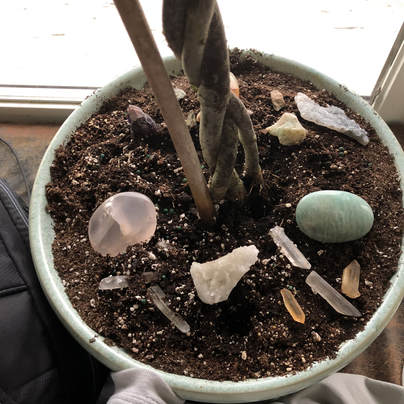 Energy Healing for Your Plants I've also discovered that along with placing and watering my plants correctly, using energy healing techniques has also helped. Above is a fluorite crystal in matrix in my jade bonsai (those aren't yellow dying leaves, by the way; it's a reflection from a lamp). In the image to the left, you can see I've placed crystals around the base of an indoor magnolia plant, which can be a bit persnickety. The green aventurine is a particularly beneficial stone for the plant's energy, while the rose quartz adds love and the clear quartz amplifies the healing energy I put into the plants. I also reiki the plant by placing my hands on it, and by holding the plant's water in my hands and giving it reiki before I water my plants. Crystal Elixirs for Watering Another way to give your plants better energy is by creating a plant crystal elixir. I'm always cautious in recommending crystal elixirs, because many crystals have toxic elements that seep into the water if you put the crystals directly in the fluid. Instead, I recommend a method of making elixirs that infuses a crystal's vibration into the water without adding any of the crystal's potentially toxic elements (such as copper or aluminum) to your plants. To make a safe crystal elixir, I put a newly cleansed crystal in a sealable silicon pouch and allow it to sit in a container of distilled water for two or three hours. For even more power, you can put it out in the moonlight overnight as it steeps. Then, remove the crystal and seal the water into a labeled jar. The water has now been infused with the energy of the crystals, and you can add a teaspoon to your watering container every time you water your plants or to your spray bottle for misting them. Crystals especially good for this purpose include green calcite, clear quartz, and moss agate, which all have beneficial energy for plants. Plant Feng Shui 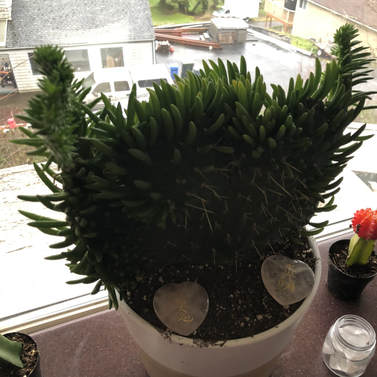 Plants are also a beneficial element for positive energy in feng shui. Some feng shui suggestions for plants: -Choose plants with rounded leaves, which invite positive energy. -Plants are especially beneficial in the bauga areas associated with wood, fire, and earth. These include the south, southeast, and east areas of your home or space. -You can also place a plant in places to diffuse negative chi, such as between a front door and a back door that are aligned, or at the base of a staircase that faces the front door (I have this in my home, and I have a plant there). -Remove dead plants, leaves, and blossoms right away because they create "dead" energy. -As some of my friends whose spaces I've helped to create better feng shui can attest, I am not a fan of fake plants because they don't have the same alive energy as real plants - and they are often dust collectors. Avoid them as much as possible. -Choose plants considered "lucky" or good feng shui to boost various energies in your spaces. Here's an article I wrote for LoveToKnow about good feng shui plants. -Avoid plants with spiky leaves or with thorns or spikes, as they can create "poison arrows" that direct sha chi, or negative chi around a space. 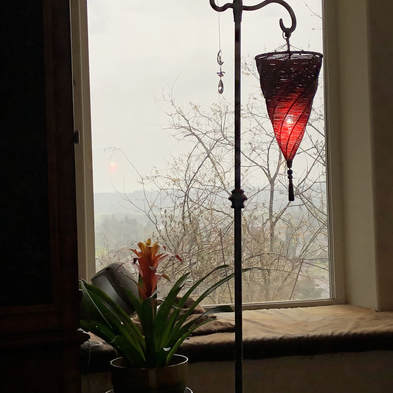 You'll notice that the above cacti, which all sit in my kitchen window, are surrounded with crystals. We purchased the larger cactus because Jim absolutely loved it; we call it Audrey 3 because it reminded us of of Audrey 2 in Little Shop of Horrors. At first, I fought bringing a cactus into the house, but Jim kept returning to it and talking about how much he loved it, so eventually I gave in figuring I could use feng shui to transmute the sha chi. So I've placed crystals around all the cacti, and the largest is surrounded by rose quartz hearts with the reiki symbols on them to cleanse the energy as it passes through the plant and into my home. Another good remedy for sha chi created by plants you fall in love with that are spiky or pointy is to place a hanging crystal above the plant to change sha chi into shi chi (positive chi). You can see an example of that to the left, where I've hung a crystal over a bromeliad plant with spiky leaves to cleanse the energy. Bringing Plant Energy into Your Home Plants can do a lot for your home beyond just making it look nice. They help improve your home's air quality and vibe. If, like me, you have a dubious history with plants, consider a plant watering app, and start with something simple and difficult to kill like a succulent or a peace lily. Then, utilize energy healing techniques available to you to help keep the plant healthy and strong, and employ feng shui techniques to make sure the plant provides the most beneficial energy possible to your home. Image by Jessica Lewis from Pixabay 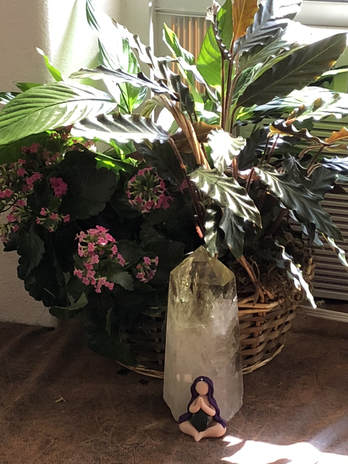 Feng shui uses the bagua to determine the most auspicious areas in your home for creating certain energies. In traditional feng shui, the energy centers for the home are determined by compass direction while in western feng shui, they are determined by standing at your front door facing into the home and overlaying the bagua map over the blueprint of your home from this position. In traditional feng shui, the prosperity and wealth corner is the southeast corner of your home (from approximately 115 degrees to about 157.5 degrees on a compass) in your home, workspace, or any room. In western feng shui, the wealth corner is the back left corner of the home, workspace, or any room. In my house, I use Western feng shui, so my prosperity corner is in the closet of my bedroom. In my living room, however, the back left corner (from the entrance into the living room) happens to also be the southeast corner, so it is here that I set up my primary wealth corner since it meets the criteria for both traditional and western feng shui and has the bonus of being the location in my house where I spend most of my waking time. While I attend to my back corner closet in my bedroom with a citrine crystal, which is a crystal of prosperity, I have made my home's primary prosperity corner the southeast (also back left) corner of my living room because it also serves as a visual reminder of my intention for success and prosperity. I'm still in the process of setting it up. Until recently, all I had there was a citrine crystal, but I decided I wanted to do more, so I've been adding elements. Right now, I have a healthy plant there, some wood elements, a giant citrine crystal, and Mirias, my goddess of abundance. I am also bringing in a jade plant (the feng shui money plant), a citrine money tree, and some Chinese coins tied with red string, all to symbolize abundance. If you'd like to use the principles of feng shui to bring the energy of abundance and success into your life, then it's time to spruce up your wealth corner (note: in this case wealth means more than money; it's an abundance of all you choose in life - wealth, joy, happiness, peace, health, etc.).
Image by Josch13 from Pixabay |
Categories
All
Archives
December 2022
|
AUTHOR KAREN FRAZIER
- Home
-
Books
- Angel Numbers for Beginners
- Avalanche of Spirits
- Chakra Crystals
- Complete Reiki
- Crystal Alchemist
- Crystals for Beginners
- Crystals for Healing
- Dancing with the Afterlife
- Dream Interpretation Handbook
- Essential Crystal Meditation
- Higher Vibes Toolbox
- Introduction to Crystal Grids
- Little Book of Energy Healing Techniques
- Noisy Ghosts
- Reiki Healing for Beginners
- Transform Your Life with Alchemy
- Ultimate Guide to Psychic Ability
- Usui Ryoho Reiki Manual
- Cookbooks
- Other Books
- Classes
- Connect
- Meditate
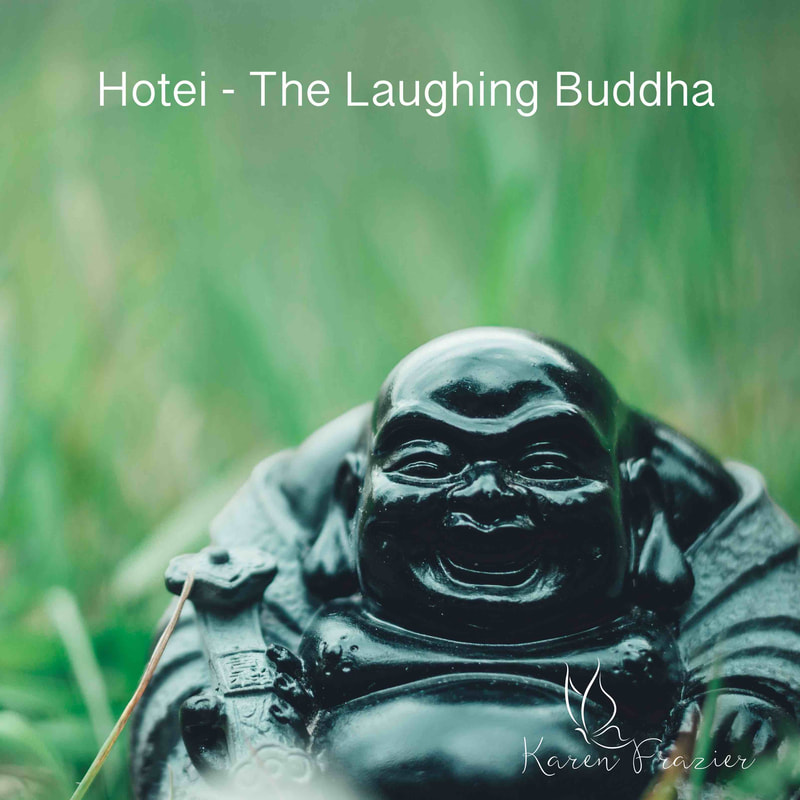
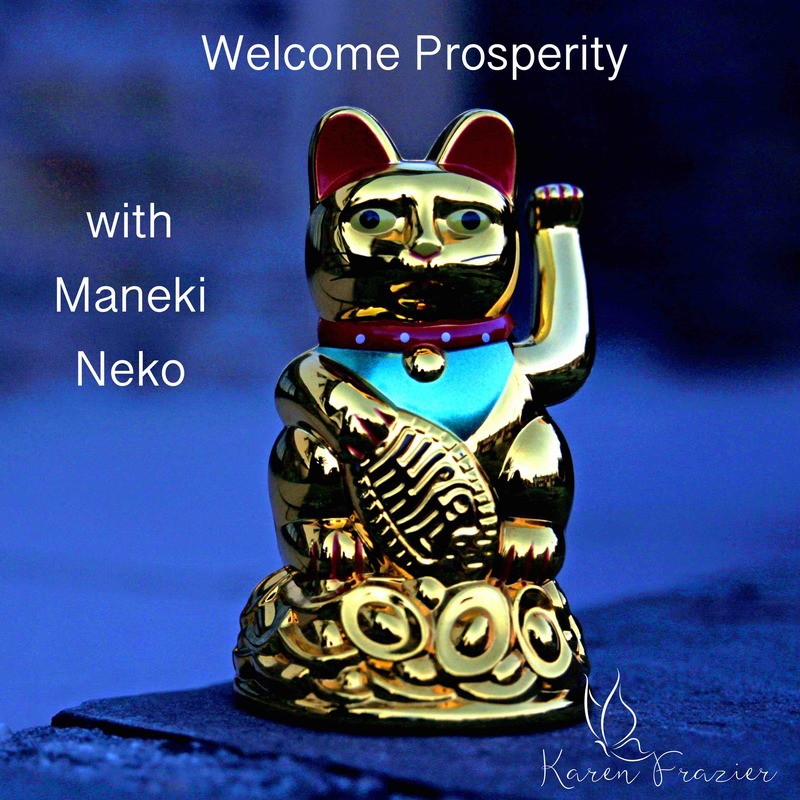
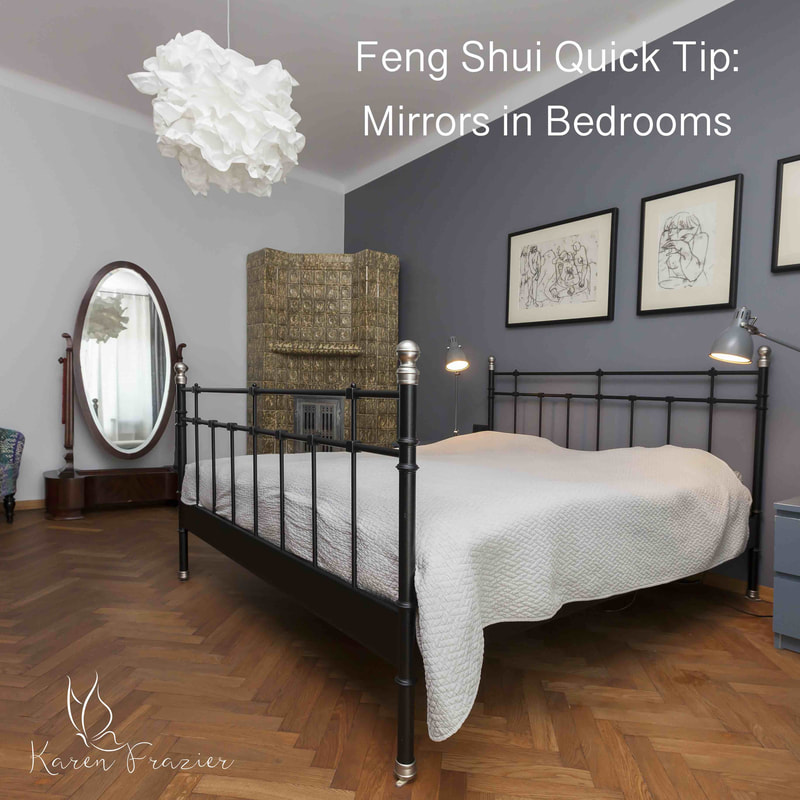
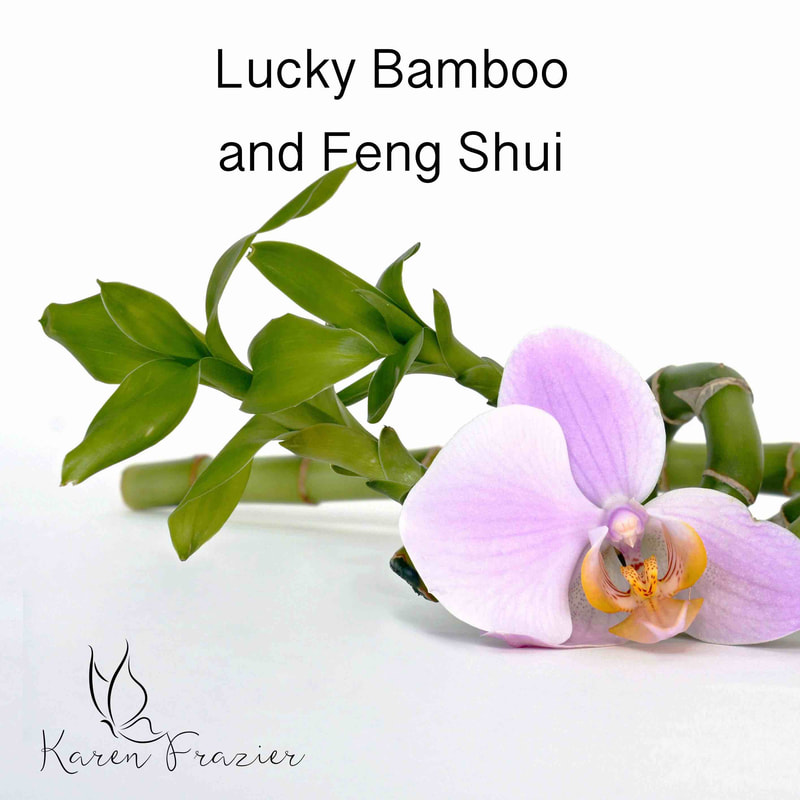
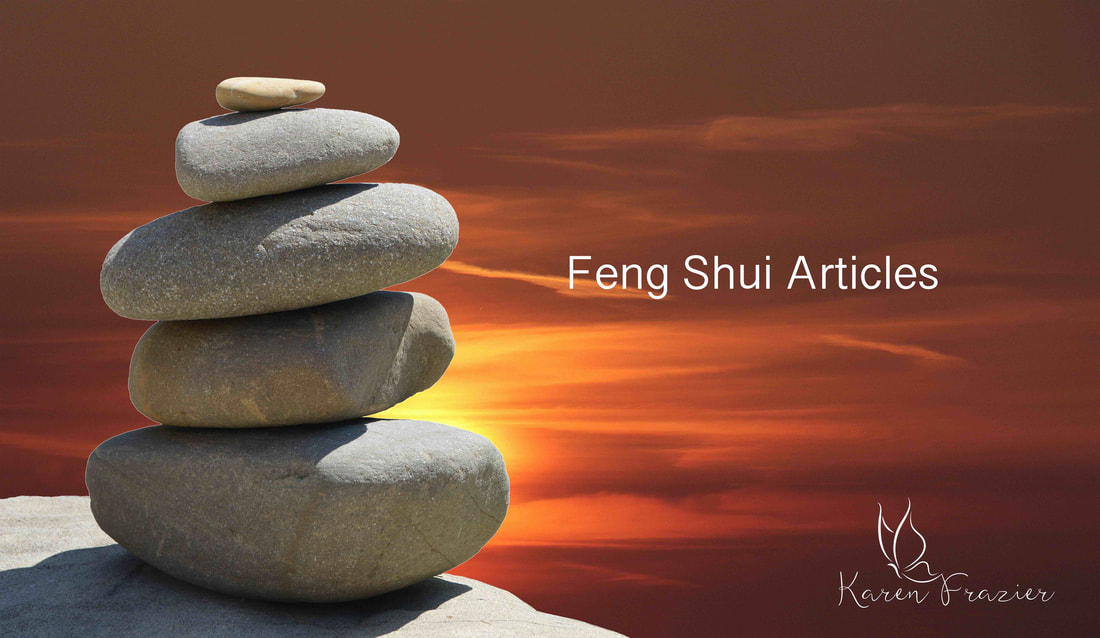

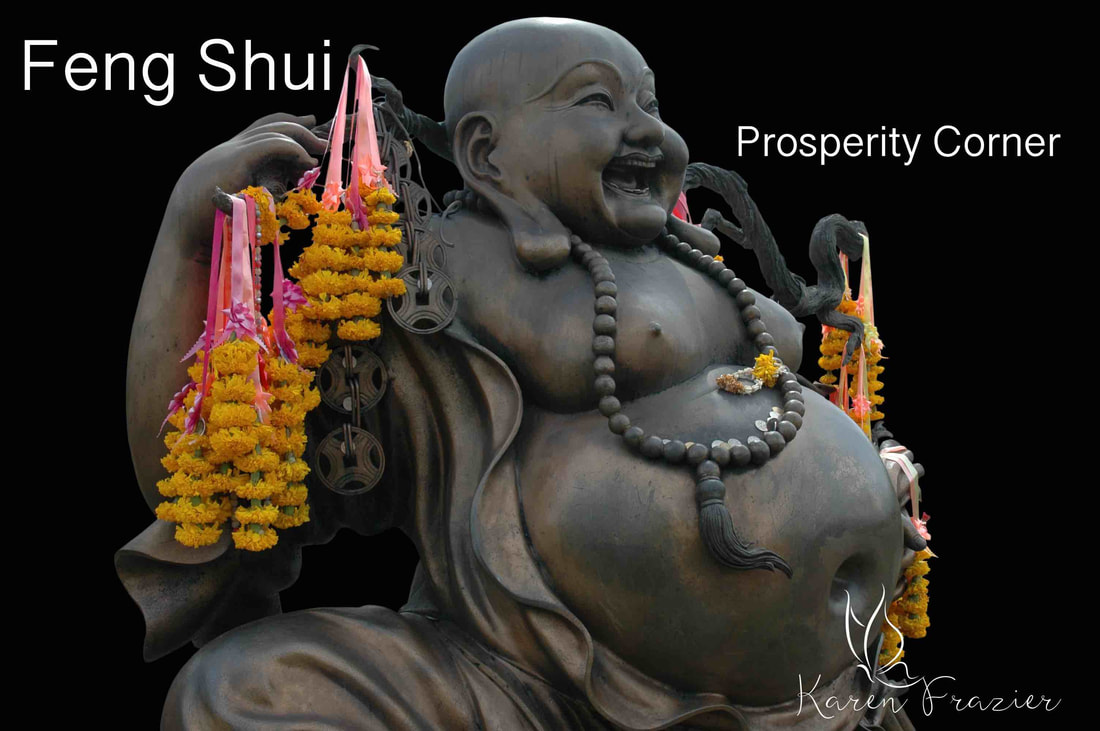
 RSS Feed
RSS Feed
